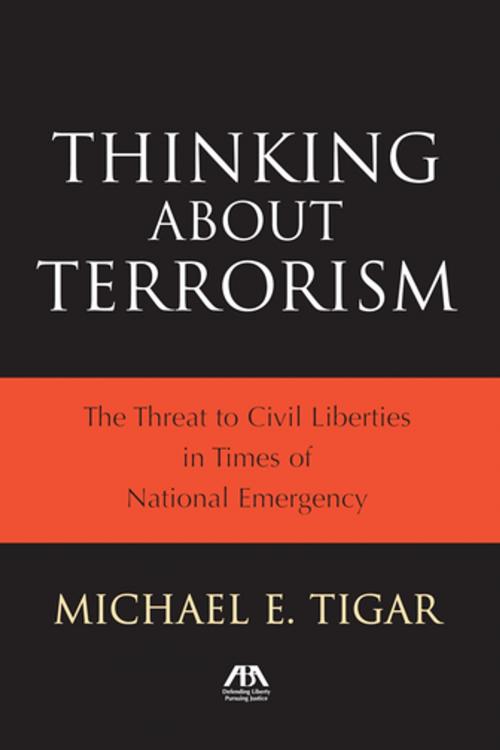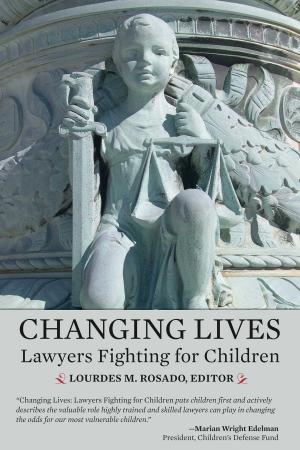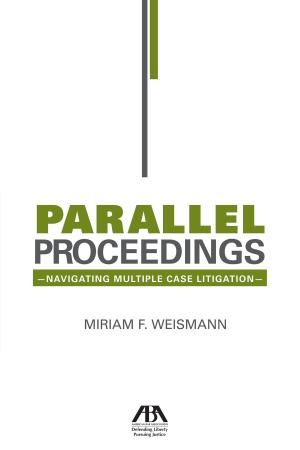Thinking About Terrorism
The Threat to Civil Liberties in a Time of National Emergency
Nonfiction, Reference & Language, Law, Reference, Civil Rights| Author: | Michael E. Tigar | ISBN: | 9781634251303 |
| Publisher: | American Bar Association | Publication: | August 30, 2007 |
| Imprint: | American Bar Association | Language: | English |
| Author: | Michael E. Tigar |
| ISBN: | 9781634251303 |
| Publisher: | American Bar Association |
| Publication: | August 30, 2007 |
| Imprint: | American Bar Association |
| Language: | English |
Written in response to Judge Richard Posner's "Not a Suicide Pact," Michael Tigar's new book examines the responses of governments throughout history to terrorist threats, including those in our own nation's history. Tigar focuses specifically on the effects of governmental action on the liberties and constitutional protections enjoyed by the people. Tigar creates a framework for analyzing our own government's responses to the terrorist attacks of 9/11 -- the now familiar litany of Guantanamo, extraordinary rendition, telephone and e-mail spying, and the like -- and for balancing these responses with rights guaranteed under the Constitution, such as the right to be free of searches and seizures and the right to privacy. Judge Posner came down squarely on the side of the current administration in defending the government's responsibility to keep the people safe at nearly all costs. Tigar demonstrates exactly what those costs have historically been, what they have been recently, and makes the case that subversion of our fragile civil rights is in fact an undermining of the very basis of the republic. Michael Tigar is widely regarded as one of the top handful of trial lawyers alive today. Revered by other trial lawyers, but not widely known to the general public, Tigar has been on the front lines of major legal battles since the late 1960s, when, just two years out of law school, he led the nationwide effort to fight draft-related prosecutions and argued the issue before the U.S. Supreme Court. Over the past forty years he has represented such defendants as Angela Davis, John Demjanjuk, Terry Nichols (the Oklahoma City bombing co-conspirator), and, most recently, Lynn Stewart. He is the author of several highly-regarded trial practice handbooks and of his autobiography, Fighting Injustice, and teaches at American University, Washington College of Law, and Duke Law School.
Written in response to Judge Richard Posner's "Not a Suicide Pact," Michael Tigar's new book examines the responses of governments throughout history to terrorist threats, including those in our own nation's history. Tigar focuses specifically on the effects of governmental action on the liberties and constitutional protections enjoyed by the people. Tigar creates a framework for analyzing our own government's responses to the terrorist attacks of 9/11 -- the now familiar litany of Guantanamo, extraordinary rendition, telephone and e-mail spying, and the like -- and for balancing these responses with rights guaranteed under the Constitution, such as the right to be free of searches and seizures and the right to privacy. Judge Posner came down squarely on the side of the current administration in defending the government's responsibility to keep the people safe at nearly all costs. Tigar demonstrates exactly what those costs have historically been, what they have been recently, and makes the case that subversion of our fragile civil rights is in fact an undermining of the very basis of the republic. Michael Tigar is widely regarded as one of the top handful of trial lawyers alive today. Revered by other trial lawyers, but not widely known to the general public, Tigar has been on the front lines of major legal battles since the late 1960s, when, just two years out of law school, he led the nationwide effort to fight draft-related prosecutions and argued the issue before the U.S. Supreme Court. Over the past forty years he has represented such defendants as Angela Davis, John Demjanjuk, Terry Nichols (the Oklahoma City bombing co-conspirator), and, most recently, Lynn Stewart. He is the author of several highly-regarded trial practice handbooks and of his autobiography, Fighting Injustice, and teaches at American University, Washington College of Law, and Duke Law School.















